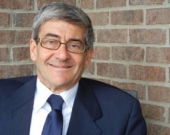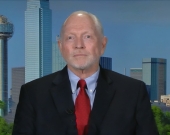Brantly Womack Professor of Foreign Affairs for Gulan: Mr. Trump sees that he can get more out of bilateral confrontations than by multilateral negotiations
June 19, 2019
Exclusive Interviews

Brantly Womack Professor of Foreign Affairs and holder of the C. K. Yen Chair at the Miller Center. Author of Asymmetry and International Relationships (2016); China among Unequals: Asymmetric Foreign Relations in Asia (2010); China and Vietnam: The Politics of Asymmetry (2006); Foundations of Mao Zedong’s Political Thought, 1917-1935; co-author of Politics in China (3rd ed.); editor of Borderlands in East and Southeast Asia: Emergent Conditions, Relations and Prototypes (2017); Rethinking the Triangle: Washington-Beijing-Taipei (2016); China’s Rise in Historical Perspective (2010); Contemporary Chinese Politics in Historical Perspective, Media and the Chinese Public; Electoral Reform in China; author of more than one hundred journal articles and book chapters on Asian politics, including articles in World Politics, World Policy Journal, International Affairs, China Quarterly, Pacific Affairs, and China Journal. Fulbright Scholar, Woodrow Wilson Fellow, Mellon Fellow; recipient of numerous research grants. Honorary professor at Jilin University (Changchun, China), and at East China Normal University (Shanghai, China). Current research interests include asymmetric international relationships, the relationship of public authority and popular power in China; provincial diversification in China; domestic politics and foreign policy of Vietnam; China’s relations with Southeast Asia. In a written interview with our Magazine, He answered our questions regarding developments concerning the trade related tensions between USA and China, and he answered the questions as the following:Gulan: first of all your overall evaluation of Mr. Trumps' approach of instrumentalization of economic tools as a coercive bargaining leverage? Do you believe that this strategy has been successful? And will it be sustainable?
- Professor Dr. Brantly Womack: In an asymmetric relationship the stronger side is less at risk than the weaker side and therefore in bargaining it has the advantage. But if it pushes its advantage to the detriment of the weaker side, it reduces opportunities for cooperation (win-win), it weakens multilateral rules, and it encourages hedging on the part of the weaker. The USA has an asymmetric relationship with every other country and Mr. Trump is a hard bargainer. Thus partners are making concessions that they would otherwise not make, but common interests are neglected, international order is shaken, and other countries are preparing to deal with the USA as an unreliable partner.
Gulan: What is your perspective about Mr. Trump's administration fixation on bilateral deals, after pulling out of many internationally negotiated agreements especially trade agreements?
- Professor Dr. Brantly Womack: Mr. Trump sees that he can get more out of bilateral confrontations than he can either by following existing international rules or by multilateral negotiations. The problem is that the more he cashes in on American leadership, the more he is out of the game. If the USA is seen as the world’s problem rather than the world’s solution, then it will isolate itself in the long run.
Gulan: To what extent USA should be concerned about the Build and Road Initiative? As some say that it could be used a stepping stone for China-led regional development, and could be translated for military expansion and political leverage?
- Professor Dr. Brantly Womack: The BRI is a very smart strategic move on China’s part because it gives emerging markets, not just neighbors, reason for hope in an uncertain and pessimistic world situation. It is a general umbrella policy with growing pains, but it strengthens China-centered global connectivity. This is not a direct threat to the USA either politically or militarily, but the shift in relative position and prestige can be perceived as threatening in the USA. But American efforts to contain China will be counter-productive.
Gulan: how do you analyze the unraveling and the failure of recent negotiation between China and USA?
- Professor Dr. Brantly Womack: The only thing that matters to Mr. Trump is his reelection. That is his big game. He is likely to stretch out the current tension until it is advantageous to announce a victorious agreement.
Gulan: do you believe that China and USA are on the collision course over non-trade related issues as the result of the collapse of this negotiation process?
- Professor Dr. Brantly Womack: This is possible, since China is playing a different game. They are likely to look for ways of hitting back that do not hurt themselves, and they certainly will be hedging against their vulnerabilities to the USA.
Gulan: what should be and could be done be both sides to deescalate and reach a mutual compromise and accommodation?
- Professor Dr. Brantly Womack: It should be obvious to both that cooperation on common interests is a good idea, but Mr. Trump is not open to this and China has good reason not to rely on the USA. One would hope that they could at least try to limit the potential damage in situations of mutual risk such as cyber security.
Gulan: what is about the WTO, can it play any meaningful and significant role in settling the dispute between these two countries?
- Professor Dr. Brantly Womack: This is certainly a hard time for the WTO. It watches over the rules of the game in trade, but that is not the game that Mr. Trump is playing, and in any case he does not play by the rules.















